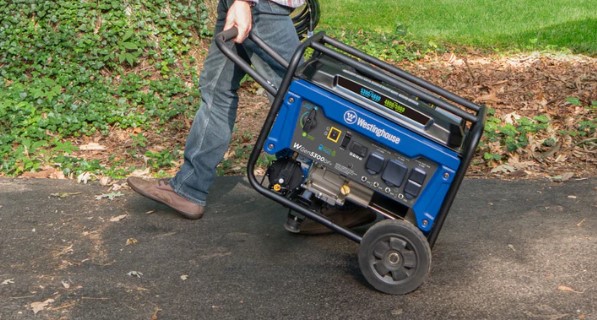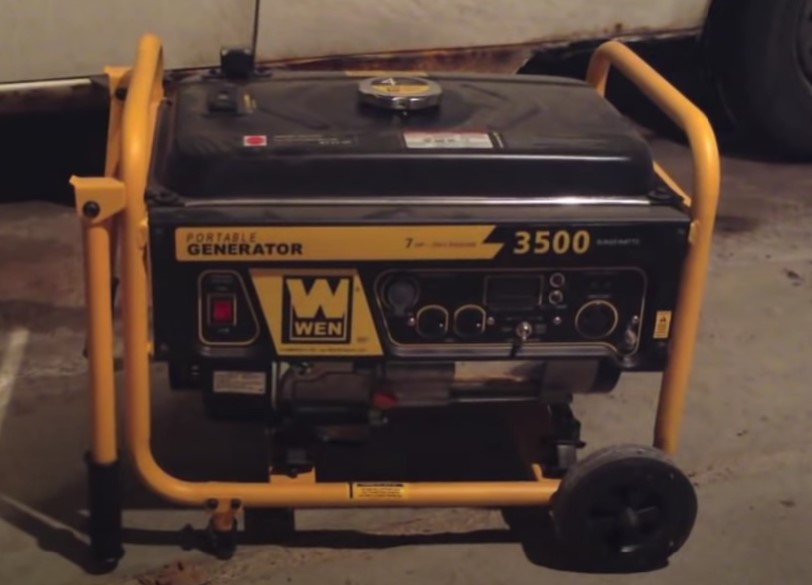Generators are essential equipment that provides backup power in case of power outages. However, during cold weather, generators can be prone to freezing, which can cause significant damage to their components.
In this discussion, we will explore the various ways to prevent generators from freezing. Additionally, practical tips on how to keep the generator warm and maintain its fluid levels. By the end of this discussion, you will have a good understanding of how to keep your generator in good working condition, even during freezing temperatures.
Here are the 6 bold steps to winterize your portable generator. You can follow these tips for propane, gas, or dual-fuel generator.
- Choose a suitable location
- Use a block heater
- Insulate the generator
- Keep the fuel tank full
- Maintain the battery
- Use a generator cover
Tips to Prevent Your Generator from Freezing
Here are the steps on how to keep a generator from freezing:
- Choose a suitable location: Before installing your generator, make sure to choose a location that is not prone to extreme temperatures. Look for a spot that is dry and sheltered, preferably in a shed or garage. This will protect your generator from snow, rain, and harsh winds.
- Use a block heater: A block heater is an effective way to keep your generator from freezing. It warms the engine block and helps maintain a consistent temperature, even in cold weather. Install a block heater and keep it plugged in whenever you anticipate freezing temperatures.
- Insulate the generator: Insulation is another effective way to keep your generator from freezing. You can use a variety of materials, such as foam, to wrap around the generator and keep the heat inside. This will also help to prevent condensation from building up and causing damage.
- Keep the fuel tank full: Keeping the fuel tank full will prevent moisture from accumulating inside, which can cause the fuel to freeze. You can also add a fuel stabilizer to the tank to prevent any damage from ethanol-blended fuel.
- Maintain the battery: A fully charged battery will ensure that your generator starts up quickly and runs smoothly. Keep the battery charged and maintain it regularly, especially during the colder months.
- Use a generator cover: A generator cover will provide an extra layer of protection against the elements. Make sure the cover is waterproof and fits securely around the generator.
By following these steps, you can keep your generator from freezing and ensure that it is ready to use whenever you need it.

Can a generator freeze in sub-zero temperatures?
Yes, a generator can freeze in sub-zero temperatures. When the temperature drops below freezing, the fluids inside the generator can freeze and cause damage to the engine, battery, and other components. The most common fluid that can freeze is the coolant, which is responsible for keeping the engine at a safe operating temperature.
If the coolant freezes, it can expand and crack the engine block, causing significant damage. Additionally, the battery can also freeze, which can cause it to lose its charge or even crack the casing.
To prevent the generator from freezing in sub-zero temperatures, it is important to take some precautions, such as keeping it in a heated area, using a block heater to keep the engine warm, and using a battery warmer to keep the battery from freezing. It is also essential to use the appropriate type of oil and coolant that is rated for use in cold temperatures.
FAQ on Winterize Portable Generator
Do you need to winterize a generator?
Yes, Winterization is much needed for generators as most of the generator owners don’t run their generators regularly. Winterization helps you to start your generator with the first click.
Can I leave gas in my generator over the winter?
No, you should not leave gas in your generator over the winter. Gasoline in the tank may cause serious damage to the engine of the generator. The main issue is the ethanol in the gasoline. You could use the stabilizer to store the generator with gas.
However, if you keep the generator with gasoline for 1 year to 2 years using the stabilizer then shut off the fuel switch to ensure the maximum safety of the engine.
How cold is too cold for a generator?
According to Westinghouseoutdoorpower, you could run your generator safely and smoothly up to 40 degrees Fahrenheit. Under this temperature, your generator will not perform well.
How can I keep my generator warm in the winter?
You could use the following items to keep your generator warm in the winter.
- Heating pad
- Cold weather kit
- Block heater

Can you leave a generator outside in the cold?
You should not leave a generator outside in the cold under the open sky. Messing the generator engine with water may cause serious damage to your portable generator.
What is a cold weather kit for a generator?
The function of a Cold weather kit for the generator is to keep the key components of the generator functional during the harsh winter or in sub-zero temperatures. Cold weather kits vary from model to model and brand of generator. So, there is no universal size cold weather kit to get the maximum performance from your generator.
Do I need a cold weather kit for my Generac generator?
yes, Generac recommends using cold weather kits for their generator where the temperature regularly falls below 32° F. It will maintain the optimum temperature for the battery and crunkbase temperature. So, you can easily start your generator in harsh winter,
Do propane generators work in cold weather?
Yes, propane generators work well in cold weather. Moreover, their performance is better than the gas generator in cold weather. You will face less difficulty in starting your propane generator in the snowfall.
Do generators need to warm up?
Yes, generators should be allowed to warm up before being used, especially in cold weather. This is because the oil in the engine needs to warm up and become more fluid to provide proper lubrication to the engine’s moving parts. In addition, allowing the generator to warm up can help stabilize the voltage and frequency output, which is important for the safe operation of electrical devices.
It is recommended to let the generator warm up for at least 2-3 minutes before connecting any electrical loads to it. This will give the engine enough time to reach its operating temperature and ensure that it is ready to provide a stable power output. However, the specific warm-up time may vary depending on the model and manufacturer’s recommendations, so it is important to refer to the user manual for specific instructions.
Also Read:
- Best Oil for Westinghouse Generator (10W30 & 5W30)
- Best Oil for Honda Generator
- What Size Generator to Run Air Conditioner?
- How to Secure Your Portable Generator from Theft?
Final Thoughts
In conclusion, keeping your generator from freezing in cold weather is essential to ensure it remains functional and reliable. By following the tips mentioned in this article, such as using a block heater, insulating the generator, keeping the fuel tank full, maintaining the battery, and using a generator cover, you can protect your generator from extreme temperatures and prevent damage caused by freezing.
Regular maintenance and inspection of your generator will also help ensure that it operates efficiently and safely in cold weather conditions. By taking these steps, you can rest assured that your generator will be ready to use whenever you need it, regardless of the temperature outside.
Recent Posts
Yes, synthetic oil can generally be used in generators. It offers superior lubrication, improved resistance to temperature variations, and longevity compared to conventional oil, which can enhance...
In today's digital age, our dependency on computers and other electronic devices is undeniable. But what happens when a power outage occurs? This is where generators come in. However, is it safe to...
